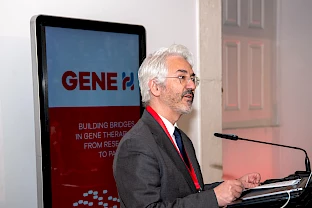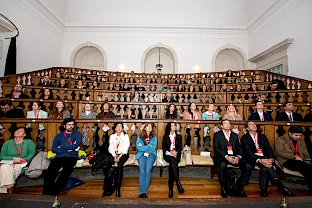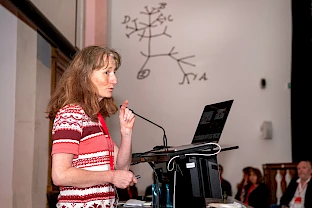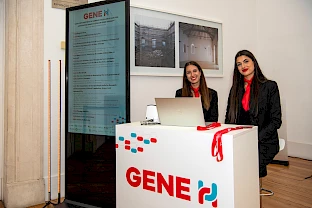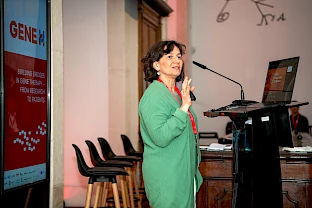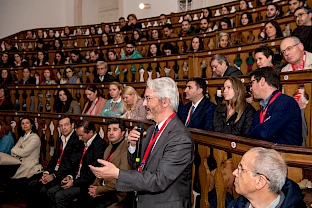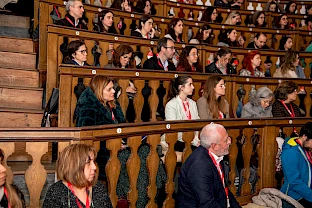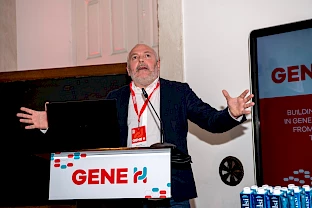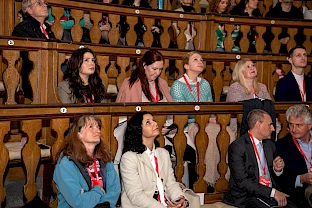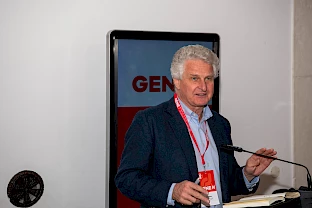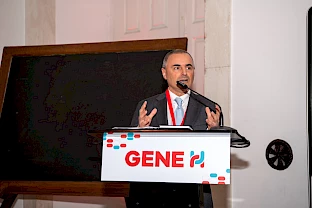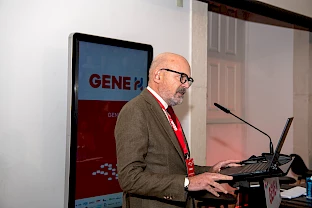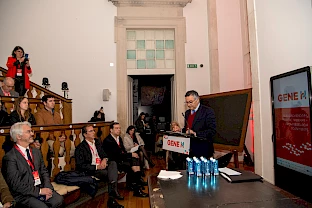University of Coimbra leads consortium with nearly €5m funding to accelerate treatment of diseases with gene therapy
GeneH aims to speed up the application of innovative therapies for genetic diseases that currently have no cure by enhancing the translation of scientific knowledge into clinical practice, a crucial step in advancing treatments.
The University of Coimbra (UC) is leading a new research consortium, GeneH: Excellence Hub for Advancing Innovation in Gene Therapy, to advance gene therapy in Europe. Specifically, GeneH wants to speed up the application of innovative therapies for genetic diseases for which there is currently no cure by boosting the translation of scientific knowledge into clinical practice, which is critical to advancing treatments.
The new funding of approximately €5 million (€4,885,375 to be exact) will enable the creation of close collaborations between academia, industry, government, and society by the end of 2028, through a quadruple helix approach – essential for overcoming current barriers to translating research into clinical practice.
"Although there have been scientific advances in gene therapy, there are still significant challenges that we need to overcome to ensure that these innovations effectively reach patients. Clinical trials in this area are still limited due to regulatory complexity, lack of specialised infrastructure, and insufficient funding for clinical development," says Luís Pereira de Almeida, Professor at the UC Faculty of Pharmacy, Director of the UC Centre for Neuroscience and Cell Biology, and Coordinator of the Centre for Innovative Biomedicine and Biotechnology.
“In addition, there is great potential in the interaction between academia and industry that we can and should better harness to facilitate technology transfer and enable scientific discoveries to be translated into innovative and accessible therapies.” Another major challenge is the involvement of regulators and policymakers, whose active participation is essential to accelerating approval and funding processes. Moreover, specialised training in this field is still insufficient, both for researchers and health professionals, and we clearly need to invest in training to ensure the sustainability and growth of this sector," adds the GeneH coordinator.
Gene therapy is an innovative therapeutic approach that offers new treatment options for a wide range of diseases, particularly rare conditions, and, in many cases, it can provide a cure with a single treatment administration. It has revolutionised the treatment and progression of neuromuscular and ophthalmological diseases, such as spinal muscular atrophy and Leber's congenital amaurosis. Approximately 20 gene therapy products are currently approved in Europe. However, there are approximately 7,000 rare diseases worldwide, 95% of which have no effective treatment.
The GeneH consortium will work closely with GeneT: Gene Therapy Centre of Excelence in Portugal, the country's first gene therapy research and innovation hub. "GeneH will expand the GeneT network by strengthening international collaboration and fostering synergies between research, industry, government and society to accelerate innovation and clinical trials," explains Luís Pereira de Almeida, who also heads GeneT. It is worth noting that UC is also coordinating the ERA Chair GCure - From Gene to Cure, a €2.5 million project to strengthen the university's capacity and visibility at the forefront of gene therapy research and innovation.
GeneH will involve organisations from two countries, Portugal and Slovenia, and 13 partners, including teaching and research institutions, health authorities, government agencies, industry and civil society. In addition to the University of Coimbra, the consortium in Portugal includes the Portuguese Association of Hereditary Ataxias, Biocant, Bluepharma, the Centre Regional Coordination and Development Commission, the Pedro Nunes Institute and the Coimbra Local Health Unit. In Slovenia, GeneH includes the Regional Development Agency of the Ljubljana Urban Region, the Rare Disease Association of Slovenia, BioSistemika (a biotech company), the Slovenian Innovation Hub, the National Institute of Chemistry and the biotech company JAFRAL.
"Our team wants to ensure that innovations reach people with genetic diseases that can be treated with gene therapy as quickly, safely, and effectively as possible, while also ensuring that patients' needs are heard," says Luís Pereira de Almeida. He adds, "This consortium is also crucial for strengthening Europe's position as a global leader in gene therapy."
The consortium is funded by the European Commission, through Horizon Europe under the Excellence Hubs call, which supports projects focused on innovation—particularly fostering and creating partnerships between innovation ecosystems and entities such as universities, businesses, public authorities, and society to expand research participation in specific countries. The call for proposals that led to the selection of GeneH was highly competitive, with 205 applications submitted and only 11 projects approved for funding.
The kick-off meeting of GeneH took place on the 21st of March at the Science Museum of the University of Coimbra.


